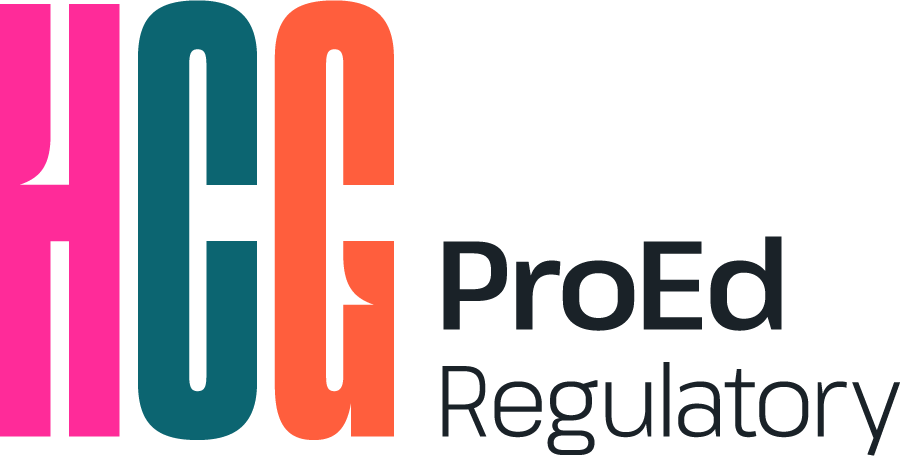Rare Disease Day 2024
This year, Rare Disease Day is on February 29, 2024. Rare Disease Day is observed on the last day of February, which is the “rarest of calendar dates1 to underscore the nature of these diseases” and serves to raise awareness of rare diseases and those individuals affected by them. FDA is holding a virtual meeting2 on March 1, 2024, as part of a global observance of Rare Disease Week. In this blog post, we aim to briefly highlight the rare disease landscape and some recent US regulatory updates.
What is a rare disease?
In the United States, the definition of a rare disease is a disease or condition that affects fewer than 200,000 people (per The Orphan Drug Act).3 Between 25 to 30 million (1 in 10) Americans4 and more than 300 million people worldwide live with a rare disease.5
How many drugs are approved to treat rare diseases?
Drugs approved to treat rare conditions or diseases are called orphan drugs.3 More than half of novel drugs approved through FDA’s Center for Drug Evaluation and Research (CDER) since 2020 received orphan drug designation,6 with 28 approved orphan drugs in 2023.7 Additionally in 2023, FDA’s Center for Biologics Evaluation and Research (CBER) approved 12 orphan drug products,8 significantly more than the 5 products approved in 2022.9
What is the FDA doing to accelerate research in rare disease?
FDA commissioner Robert Califf acknowledged that rare disease trials may look different, with smaller patient numbers and stated that, “We’re about to see a tsunami of therapies for a rare and ultra rare disease, and I don’t think any of us think the current pathways are optimal.”10 Peter Marks has echoed these sentiments and encouraged use of the accelerated approval pathway along with general regulatory flexibility in approving products for rare diseases.
From a regulatory perspective, there are quite a few rare disease drug development FDA guidances that provide a framework for approval.11 There are also new initiatives designed to spur orphan drug development. In September 2023, the START Pilot Program was initiated,12 aimed at increasing communications between drug developers and the FDA with the end goal of increasing efficiency and development. Requirements differ between CBER and CDER:
“In addition to having an active IND, eligible CBER-regulated products must be a gene or cellular therapy intended to address an unmet medical need as a treatment for a rare disease or serious condition, which is likely to lead to significant disability or death within the first decade of life.
Under CDER’s eligibility criteria, the product must be intended to treat rare neurodegenerative conditions, including those of rare genetic metabolic type.”
CBER and CDER each have their own respective rare disease programs – CDER’s Accelerating Rare disease Cures (ARC) Program13 and CBER’s Rare Disease Program14 – that aim to advance the development and approval of products used to treat rare conditions. In a joint program between CBER and CDER, FDA has initiated a Rare Disease Endpoint Advancement Pilot Program15 “to support novel endpoint efficacy development for drugs that treat rare diseases.”
Although still in early stages of development, the FDA introduced the Collaboration on Gene Therapies Global Pilot (CoGenT),16 intended to provide for concurrent submission and collaborative review of applications with global regulatory partners. Currently, there is no uniform global standard for evaluation or regulation of cell and gene therapy products, many of which treat rare diseases, and the agency hopes to harmonize regulations and review efforts with multiple international agencies.
How can the public get involved?
The National Organization for Rare Diseases (NORD)5 hosts a natural histories patient registry platform called the IAMRARE® Program,17 “with extensive input from FDA, NIH, patients, organizations and experts in the field.”
FDA hosted a public meeting in December 202318 focusing on patient (and patient advocacy groups) as well as rare disease expert engagement. Mechanisms to encourage patient engagement exist at the FDA, including Patient Listening Sessions19 (in partnership with NORD) with a rare disease focus. Finally, FDA’s public meeting on March 1 is dedicated to patients and providers – you can still register here.2
References
- National Organization for Rare Disorders (NORD). Rare Disease Day: Frequently Asked Questions. https://rarediseases.org/wp-content/uploads/2019/01/RDD-FAQ-2019.pdf. Accessed February 26, 2024.
- U.S. Food and Drug Administration. Public meeting: FDA Rare Disease Day 2024. https://www.fda.gov/news-events/fda-meetings-conferences-and-workshops/public-meeting-fda-rare-disease-day-2024-03012024#:~:text=FDA%20will%20host%20Rare%20Disease,and%20medical%20products%20at%20FDA. Accessed February 26, 2024.
- U.S. Food and Drug Administration. Rare Diseases Team. https://www.fda.gov/about-fda/center-drug-evaluation-and-research-cder/rare-diseases-team#:~:text=What%20is%20a%20rare%20disease,people%20in%20the%20United%20States. Accessed February 26, 2024.
- National Institutes of Health. Rare Diseases. https://www.nih.gov/about-nih/what-we-do/nih-turning-discovery-into-health/promise-precision-medicine/rare-diseases#:~:text=Rare%20diseases%20were%20once%20considered,30%20million%20Americans%20are%20affected. Accessed February 26, 2024.
- National Organization for Rare Disorders (NORD). Show Your Stripes® for Rare Disease Day with NORD. https://rarediseases.org/rare-disease-day/. Accessed February 26, 2024.
- Lee KJ. CDER Continues to Advance Rare Disease Drug Development with New Efforts, Including the Accelerating Rare Disease Cures (ARC) Program. https://www.fda.gov/drugs/our-perspective/cder-continues-advance-rare-disease-drug-development-new-efforts-including-accelerating-rare-disease. Accessed February 26, 2024.
- U.S. Food and Drug Administration. Advancing Health Through Innovation: New Drug Therapy Approvals 2023. https://www.fda.gov/media/175253/download?attachment#:~:text=More%20than%20half%20(28)%20of,2023%20received%20orphan%20drug%20designation. Accessed February 26, 2024.
- U.S. Food and Drug Administration. CBER 2023 Orphan Approvals (new BLAs). https://www.fda.gov/vaccines-blood-biologics/cber-2023-orphan-approvals-new-blas. Accessed February 26, 2024.
- U.S. Food and Drug Administration. CBER 2022 Orphan Approvals (new BLAs). https://www.fda.gov/vaccines-blood-biologics/cber-2022-orphan-approvals-new-blas. Accessed February 26, 2024.
- Wu LL. FDA Commissioner Robert Califf highlights need for ‘creative approaches’ for rare disease therapies. Endpoints News; January 30, 2024. https://endpts.com/fda-commissioner-robert-califf-highlights-need-for-creative-approaches-for-rare-disease-therapies/. Accessed February 26, 2024.
- U.S. Food and Drug Administration. Guidance Documents for Rare Disease Drug Development. https://www.fda.gov/drugs/guidances-drugs/guidance-documents-rare-disease-drug-development. Accessed February 26, 2024.
- U.S. Food and Drug Administration. FDA Launches Pilot Program to Help Further Accelerate Development of Rare Disease Therapies [press release]. September 29, 2023. https://www.fda.gov/news-events/press-announcements/fda-launches-pilot-program-help-further-accelerate-development-rare-disease-therapies. Accessed February 26, 2024.
- U.S. Food and Drug Administration. Accelerating Rare disease Cures (ARC) Program. https://www.fda.gov/about-fda/center-drug-evaluation-and-research-cder/accelerating-rare-disease-cures-arc-program. Accessed February 26, 2024.
- U.S. Food and Drug Administration. CBER Rare Disease Program. https://www.fda.gov/vaccines-blood-biologics/cber-rare-disease-program. Accessed February 26, 2024.
- U.S. Food and Drug Administration. Rare Disease Endpoint Advancement Pilot Program. https://www.fda.gov/drugs/development-resources/rare-disease-endpoint-advancement-pilot-program. Accessed February 26, 2024.
- Sutter S. Don’t Call It Project Orbis: CoGenT Global Will Pilot Collaborative Review of Gene Therapies. Pink Sheet. January 10, 2024. https://pink.citeline.com/PS149607/Dont-Call-It-Project-Orbis-CoGenT-Global-Will-Pilot-Collaborative-Review-Of-Gene-Therapies. Accessed February 26, 2024..
- National Organization for Rare Disorders (NORD). IAMRARE® Program Powered by NORD. https://rarediseases.org/advancing-research/patient-registry-program/. Accessed February 26, 2024.
- U.S. Food and Drug Administration. Public Meeting on Advancing the Development of Therapeutics Through Rare Disease Patient Community Engagement. https://www.fda.gov/drugs/news-events-human-drugs/public-meeting-advancing-development-therapeutics-through-rare-disease-patient-community-engagement. Accessed February 26, 2024.
- U.S. Food and Drug Administration. FDA Patient Listening Sessions. https://www.fda.gov/patients/learn-about-fda-patient-engagement/fda-patient-listening-sessions. Accessed February 26, 2024.

Jackie Orabone, PhD
Scientific Director
Jackie helps clients prepare for FDA Advisory Committee meetings by combining her scientific expertise and research knowledge in immunology with medical communications agency experience.
Connect with Jackie on LinkedIn.

